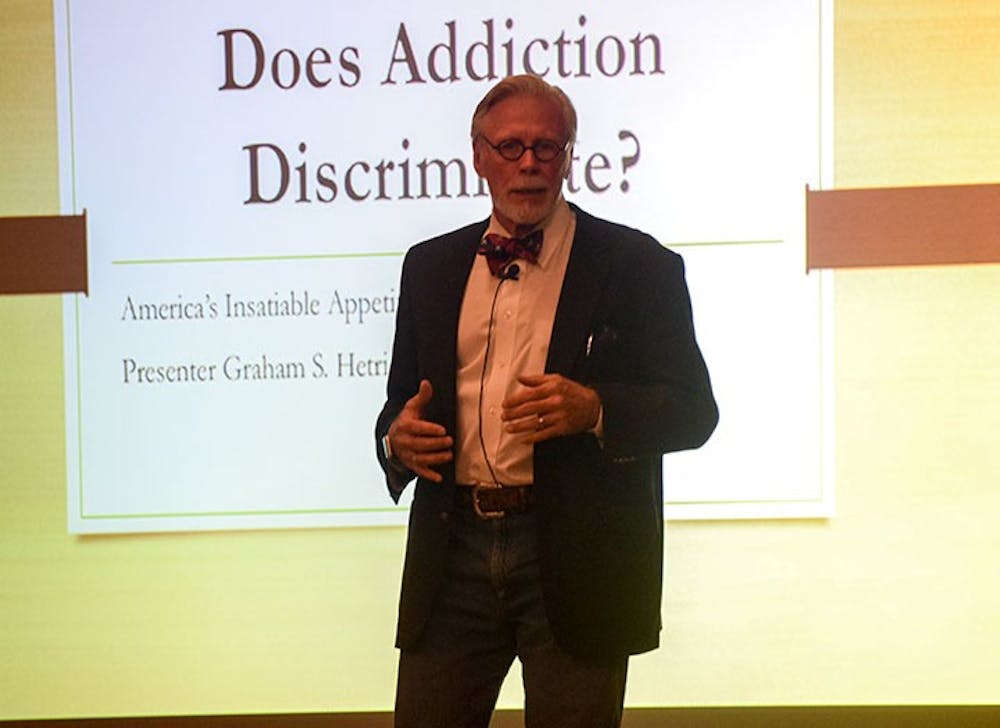Coroner and medical legal death investigator, Graham Hetrick, spoke about drug addiction in America and the opioid crisis during his lecture at Shippensburg University on April 2 in Old Main Chapel.
Hetrick’s presentation “A Look at America’s Insatiable Appetite for Drugs: Does addiction discriminate?” addressed the causes behind America’s opioid crisis from a unique perspective. For more than 27 years, Hetrick has been working to uncover the how and why behind a person’s death.
Currently, Hetrick serves as the elected coroner of Dauphin County, Pennsylvania, and has done so for more than 25 years.
During those years he has certified more than 13,000 deaths, investigated nearly 600 homicides and performed 3,000 autopsies. One can watch Hetrick live and in action on his television show “The Coroner: I Speak for the Dead” on the Investigation Discovery channel.
The presentation started with a short clip from Hetrick’s television show, featuring the reaction of a mother who was just informed that her son had died from an opioid overdose. The video showed the mother struggling to believe that her son had died.
“No parent should turn a blind eye to it, no one is immune to this,” she said while wiping away tears.
Hetrick added how people are quick to ignore the problem until it happens to them or someone that they love.
He defined addiction as repetitive action that has a negative consequence. Hetrick went on to ask the audience “Why are the richest and freest people in all of history needing to anesthetize themselves?”
Hetrick believes the root of America’s addiction problem comes from the way that our society operates. As a society, we have failed to take care of the people that we bring into this world and as a result they are more likely to develop addictive behaviors throughout their lives.
“If we are going to talk about addiction, we have to talk about how to treat our bodies,” Hetrick said as a call to action.
He discussed the benefits that eating healthier, working out, meditating and doing breathing exercises can have on people’s physical and mental well-being. If Americans really wish to end the country’s addiction problem, they would spend their time and energy helping those around them better themselves and not continue to turn a blind eye.
“After all these years of listening to the dead I believe that there is something beyond this,” Hetrick said.
People are all interconnected as human beings and need to start treating each other that way.




The Slate welcomes thoughtful discussion on all of our stories, but please keep comments civil and on-topic. Read our full guidelines here.